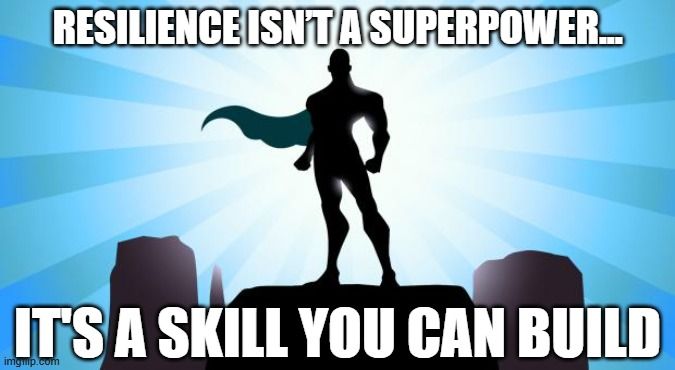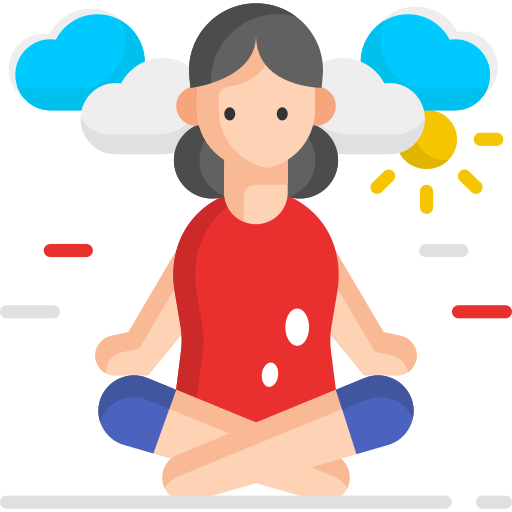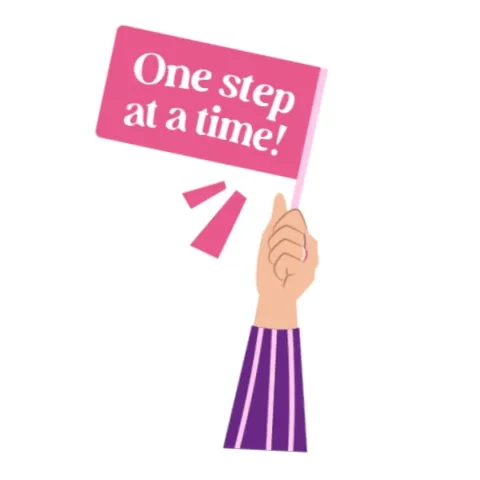Did you know that resilience isn’t something you’re born with? It’s a skill you can build over time!
If you’re feeling overwhelmed or struggling to stay positive through your difficulties, try using the Resilience Framework to help you face your challenges and grow stronger!

What is resilience?
Resilience is the ability to:
Recover from setbacks.
Adapt to change.
Keep going even when things are hard.
Find practical ways to deal with challenges in different areas of your life.
It's like being a tree that bends with the wind but doesn’t break!
 Resilience helps you bounce back from tough situations, whether it's at work, in relationships, or in life.
Resilience helps you bounce back from tough situations, whether it's at work, in relationships, or in life.

The Resilience Framework Model
Let's take a look at the Resilience Framework by Boingboing, which breaks resilience into simple, everyday steps.
These steps are organized under four broader categories of practice: basics, belonging, learning, and coping. If you're feeling overwhelmed or having difficulties, you can review each of these categories to better understand your challenges, and then apply the practical steps to adapt, recover, or keep going.

Basics: Meeting Your Basic Needs
What it Means:
Resilience starts with making sure your basic needs are met. You can’t handle challenges well if you’re exhausted, hungry, or feel unsafe.

Steps to Take:
Get enough sleep each night (7-9 hours).
Eat balanced, nutritious meals that give you energy.
Make time to relax and unwind.
Example:
If you're stressed about a big assignment, skipping sleep and meals or worrying won't help. Instead, get enough rest, eat regularly, and take breaks to stay focused.
Belonging: Building Strong Relationships
What it means:
We all need supportive relationships. Connecting with family, friends, or community helps you feel supported during tough times.

Steps to Take:
Surround yourself with caring people.
Stay connected with friends or family.
Join groups, clubs, or communities that match your interests.
Example:
During tough times, like a job search, talking to a friend or family member can keep you motivated. Their support, even if they can't solve everything, makes a big difference.
Learning: Developing Problem-Solving Skills
What it means:
Challenges are opportunities to learn and grow. Developing problem-solving skills helps you find creative solutions.

Steps to Take:
See challenges as opportunities to learn.
Don’t be afraid to ask for help.
Example:
If you’re overwhelmed by multiple tasks, try breaking them down into smaller parts. Prioritize what needs to be done first and ask for help if necessary.
Coping: Managing Stress and Emotions
What it means:
Life can be stressful, but learning healthy ways to cope with stress and emotions helps you stay calm and focused.

Steps to Take:
Practice relaxation techniques like deep meditation.
Get regular exercise to release stress.
Take breaks when things feel overwhelming.
Example:
When you’re feeling anxious before a big presentation, take a few minutes to do deep breathing exercises. This can calm your nerves and help you stay focused.
Scenario: John's Big Change at Work

Meet John. He’s facing a significant change at work, as he’s been asked to take on new responsibilities that he’s never handled before. John feels nervous about whether he’s ready for these new challenges.
John wants to find ways to adapt and feel more confident during this transition.
Quiz
Which steps from the Resilience Framework can help John manage his stress and adapt to the change? Select all that apply:
Take Action
 Now that you better understand what the Resilience Framework is, and how to use it, you are ready to take action and start building your resilience!
Now that you better understand what the Resilience Framework is, and how to use it, you are ready to take action and start building your resilience!
Your feedback matters to us.
This Byte helped me better understand the topic.
